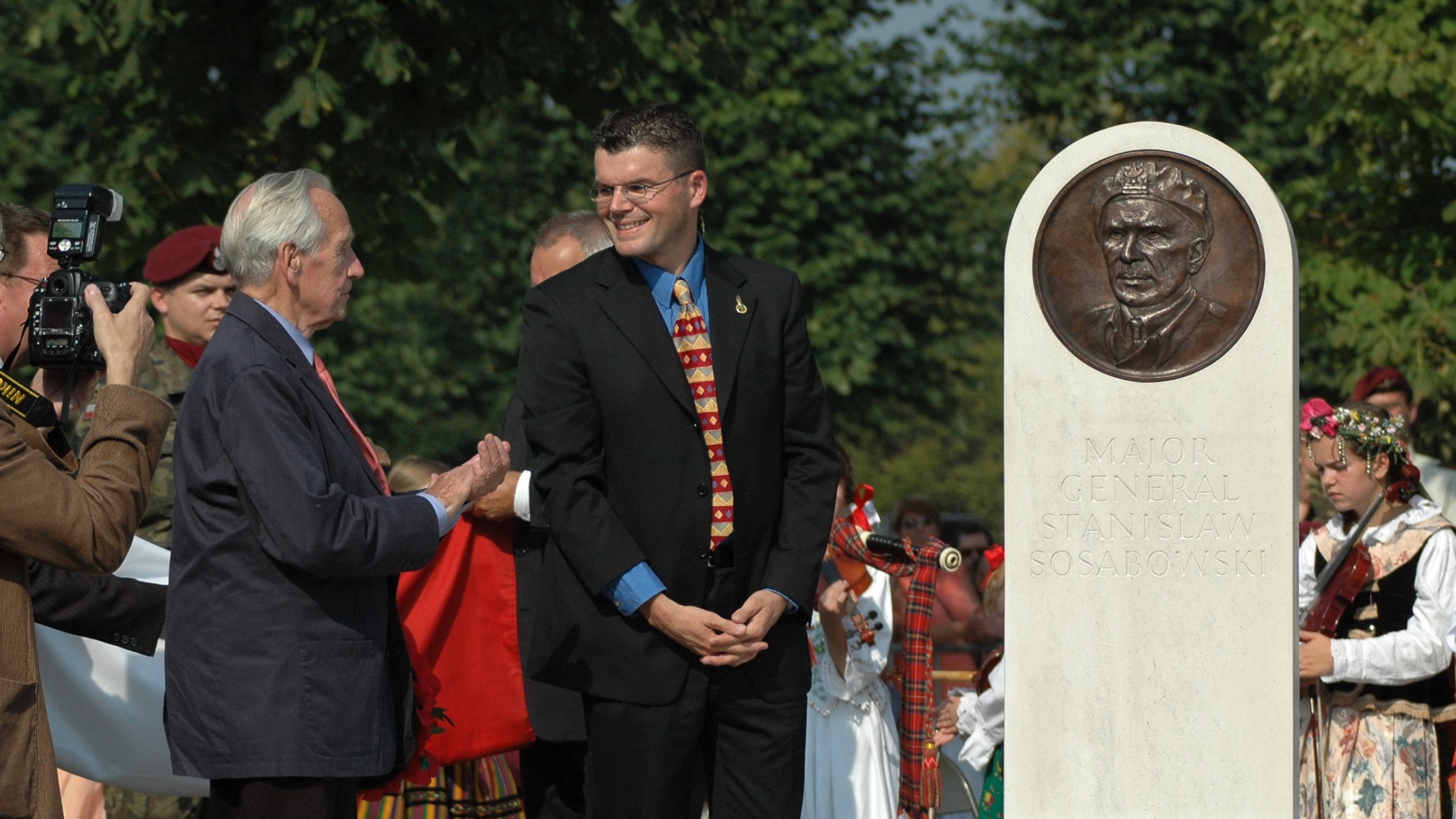UN diplomat Brian Urquhart passed away
High-level UN diplomat and advocate for rehabilitation of the Poles praised the unique relationship of the Dutch with Polish and British soldiers
Former high-level UN diplomat Brian Urquhart (1919-2021), who died January 2nd, saw many conflict areas. In a speech in 2006, he praised the unique relationship that exists between our region of Gelderland and the Poles and British. A relationship that finds it origin in the important September days of 1944.
In 1944 Brian Urquhart was an intelligence officer in the staff of the British Airborne Forces. He was one of the few who criticized the plan to drop the troops 12 kilometres from the bridge at Arnhem and pointed out the presence of SS armoured troops. “I became a general pain in the neck around Corps Headquarters, and Browning (commander of the British Airborne Forces. Ed.) dismissed not only my argument but also me..” told Brian Urquhart in a speech in 2006.
Blue Helmets
After World War II, Urquhart was closely involved in the creation of the United Nations. He did this convinced that things could be done differently after six years of war. He served as a close adviser to the first five UN Secretaries-General. He led thirteen peacekeeping operations and was he who came up with the idea of the recognizable blue helmet of the UN troops.
Advocate for rehabilitation
Inknown to Urquhart at that time was that in 1944 another officer criticized the plan prior to the battle and also criticized tactical decisions during the battle. This was the Polish General Sosabowski. His criticism led to the Poles becoming the scapegoats after the failure of the Battle of Arnhem.
During the rehabilitation of General Sosabowski and his brigade, Urquhart supported the British Major Tony Hibbert, who argued that, in addition to the Dutch, the British should also rehabilitate the general. In 2006 this was doen by the British comrades in arms from 1944 with the unveiling of the Sosabowski memorial in Driel.
On the eve before this unveiling, at a dinner in honour of General Sosabowski, Sir Brian Urquhart gave the speech in which he described how he was dismissed for his criticism. About Sosabowski said in the same speech: “I think is not quite so well known that he (next to his criticism up front Ed.) also took part in another life or death decision in which he was completely ignored. […] Sosabowski, I think, quite rightly pointed out that if they went a little further down the river (to cross the Rhine) there weren’t any major German positions on the North side of the river, and that was the place to go. And he was not even given a civil hearing. He made his statement, nobody listened and then justifiably he walked out. I think this was a very shameful occasion for the British Army. Because the fact of the matter is that he was absolutely dead right.
[…]
Sosabowski was sort of written off as a pain in the neck. When in fact if they had adopted his ideas, they might have made a show of it – and what a difference that would have made. So, I think that he has a really remarkable record of being right against a majority on two extremely important life or death decisions and, as I say, there is nothing that makes a person more unpopular.”
Special relationship with the people from Gelderland
Before Urquhart reflected on the rehabilitation of Sosabowski in his speech, the former UN diplomat who witnessed many conflicts in the world from close by reflected on the relationship between the people of Gelderland, the Poles and the British:
“I just first of all want to say that this relationship of the people of what I call Holland – “The Netherlands”, particularly of the Arnhem area and the soldiers of various nationalities including British and Polish who came here in 1944, is something completely unique in my experience. This is still a sort of intimate family relationship of an event that happened sixty-two years ago and it was not even a great success. In fact it was a terrible disaster for the inhabitants of this area and yet it has become the most extraordinarily intimate, even emotional relationship and I very much hope that this will go on through the generations, because I think that this is something – a demonstration of the human spirit which is very rare and very important, and we all must be very grateful to all the people who have kept it going and I hope that it keeps going after we have all gone.”
Now that Brian Urquhart himself is no longer among us, this reflection and appeal of this UN top diplomat to the population of Gelderland has gained extra weight.
***

Brian Urquhart (left) with great-grandson of General Sosabowski at the just unveiled monument to the general in Driel in 2006
This article contains excerpts from Sir Brian Urquhart’s speech on September 15, 2006. The full speech can be read here (PDF). The speech comes from the archives of the Foundation. On our site you can read more about our archive and the effort to make it publicly available.
